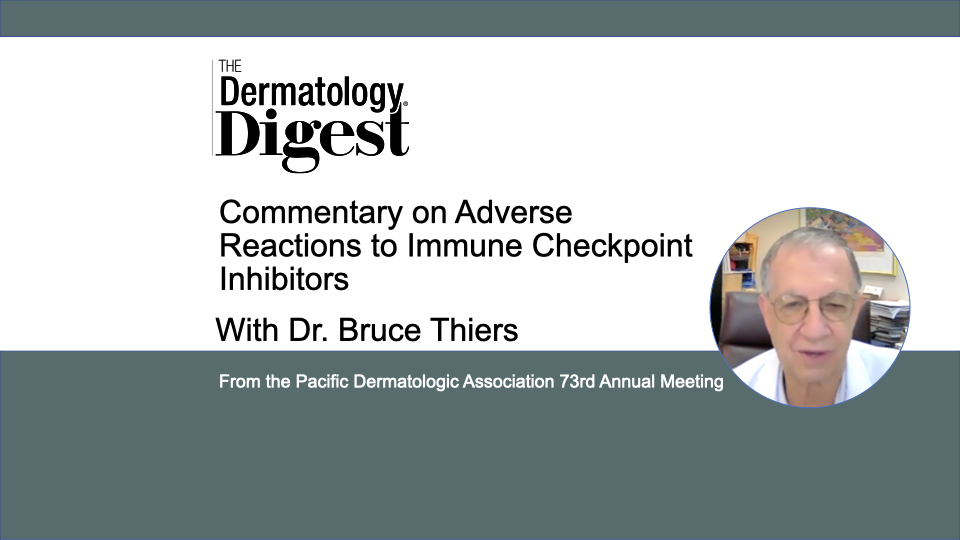Dr. Bruce Thiers discusses the spectrum of skin and systemic adverse reactions patients may experience from immune checkpoint inhibitors.
Bruce H. Thiers, MD, FAAD is Immediate Past President of the American Academy of Dermatology, Distinguished University Professor and Chair Emeritus in the Department of Dermatology and Dermatologic Surgery at the Medical University of South Carolina in Charleston.
“When you’re stimulating the immune system [with immune checkpoint inhibitors], you’re doing it systemically, so the adverse reactions may not be limited to the skin,” said Bruce Thiers, MD, FAAD.
Dr. Thiers presented “Adverse Reactions to Immune Checkpoint Inhibitors” at this year’s Pacific Dermatologic Association Meeting, during which he discussed adverse reactions to these immunotherapy drugs that occur both in the skin and systemically.
“Probably the most common reactions we see systemically are gastrointestinal inflammation and pneumonitis,” he said. “In the skin, we can see a variety of patterns.”
According to Dr. Thiers, specific skin reactions may include a psoriasis- or lichen planus-like rash, bullous pemphigoid (commonly seen later in the course of therapy), vitiligo (especially in patients being treated for melanoma), and alopecia areata. Erythema multiforme, Stevens-Johnson Syndrome, and DRESS (drug reaction with eosinophilia and systemic symptoms) are also possible.
“Compared to systemic adverse events, cutaneous side effects occur fairly early [in the course of treatment], usually in the first few weeks, so they could be a warning sign of additional problems to come, including gastrointestinal or pulmonary issues; endocrinologic reactions typically occur quite late. And even among the skin reactions, a nonspecific rash and psoriasis tend to occur early, whereas bullous pemphigoid generally occurs later.”
However, an adverse reaction involving the skin does not necessarily indicate that patients will also experience systemic reactions. Still, Dr. Thiers suggests telling patients to let their physicians know if any unusual signs or symptoms occur.
“Adverse reactions to immune checkpoint inhibits indicate that your immune response is being stimulated… and with the immune response it’s a yin and a yang. We know from our experience with immunosuppressive drugs that too much immunosuppression can be harmful; similarly, too much immunostimulation can be harmful as well. What we’re seeing in terms of these adverse reactions is in a sense analogous to autoimmunity. Cutaneous reactions to immune checkpoint inhibitors suggest that your immune system is really being charged up, and they are a warning sign that problems may develop elsewhere.”


